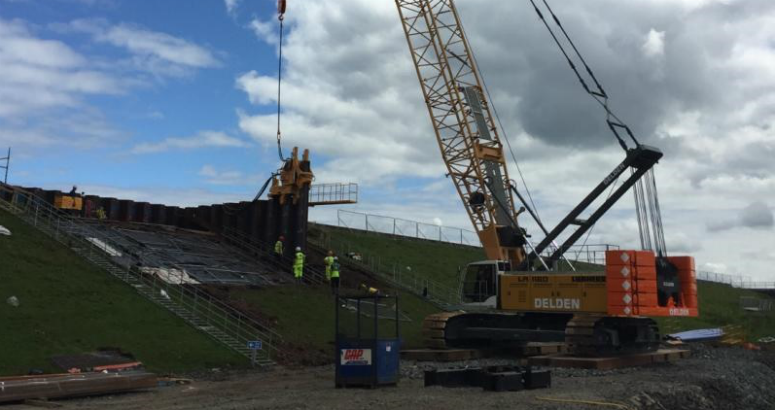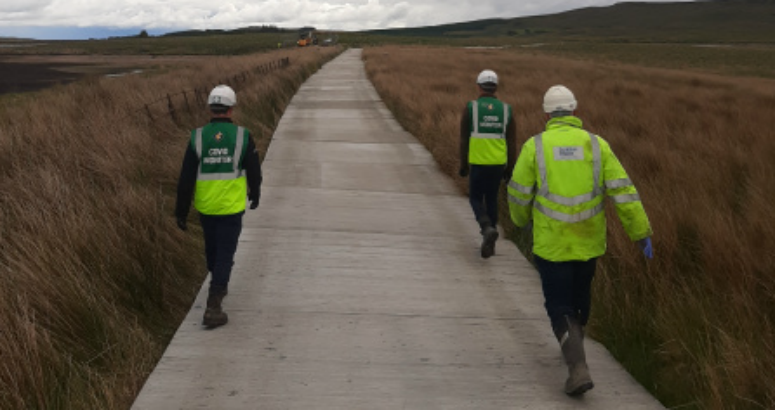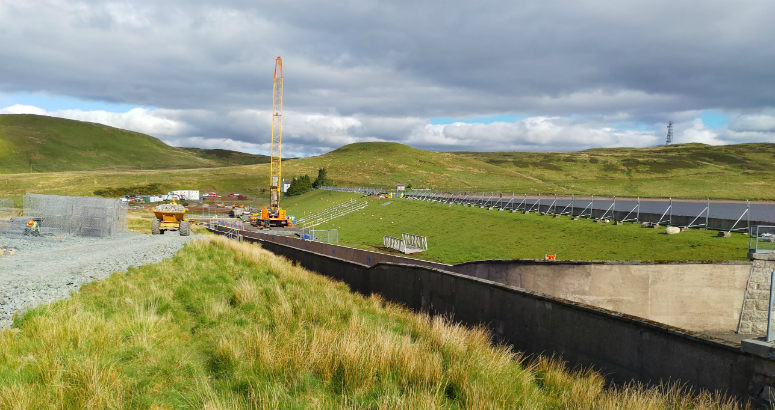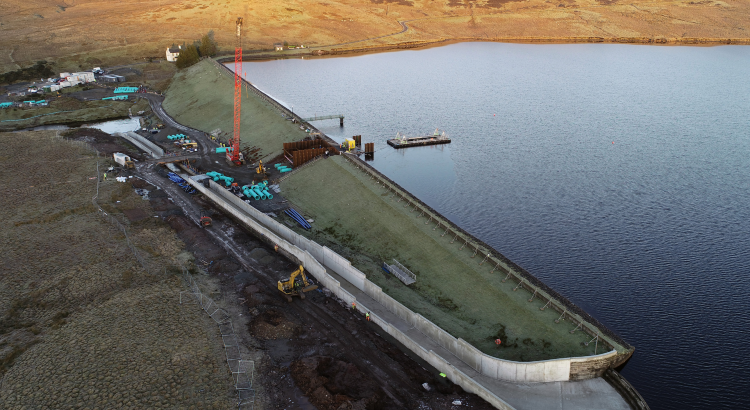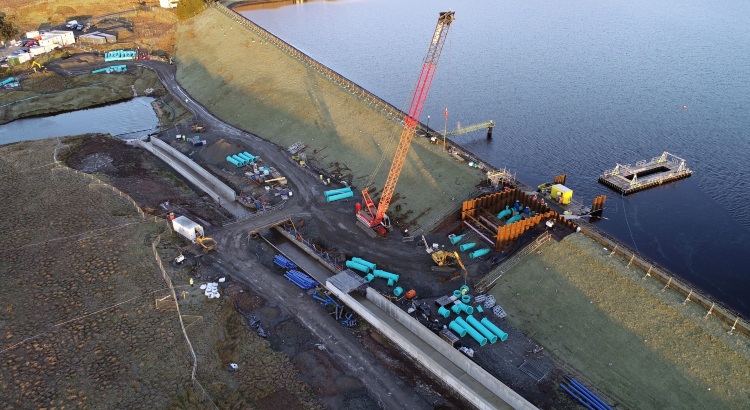Loch Thom Triumphs at Prestigious Civil Engineering Awards
04 October 2021Jointly managed by ICE Scotland and CECA Scotland, the awards showcase civil engineering in Scotland at its best and highlight the real difference infrastructure makes for communities and people across Scotland.
The Innovation Award secured by the Loch Thom Project recognises ground-breaking improvements, products, materials and ways of working.
The entire scheme was modelled in 3D which allowed accurate visualisation of the project and vastly improved operations on site. Virtual walk throughs of the site were also undertaken to identify issues before construction commenced, thus improving the design and reducing the number of issues experienced during construction.
Loch Thom Project in Pictures
Loch Thom was the first of Scottish Water's major projects to re-start after the lockdown in March of last year.
“We are absolutely delighted to win this accolade from the Scottish Civil Engineering Awards, these awards are widely recognised as the highest honour for engineering excellence in the build environment. It’s is a real testament to the wider, talented team who worked on this project and the excellence in innovation that we all strive for.”
Gerry O'Hara
Project Manager, Scottish Water
Safeguarding Loch Thom
The substantial upgrades which were undertaken during this major engineering operation are now helping to safeguard the reservoir.
Newly strengthened embankments are offering protection against the risks expected from climate change, mainly flooding and erosion.
Three 1100mm diameter siphon pipes were constructed and installed through the main embankment to discharge into the spillway channel which was also increased in height. These siphons now allow a greater volume of water to be drawn down from the reservoir as and when required, with the ability to lower the water level by one metre per day.
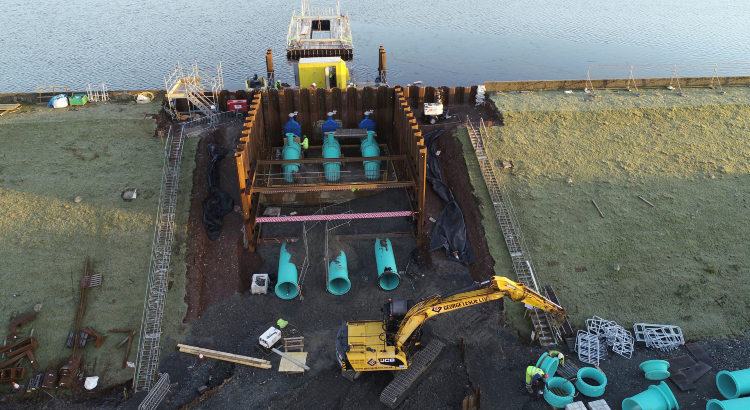
Upgrades
Three newly installed siphons at Loch Thom allow a greater volume of water to be drawn down from the reservoir as and when required.
Gerry O’Hara, Scottish Water’s project manager who led the project, said: “We are absolutely delighted to win this accolade from the Scottish Civil Engineering Awards, these awards are widely recognised as the highest honour for engineering excellence in the build environment. It’s is a real testament to the wider, talented team who worked on this project and the excellence in innovation that we all strive for.”
“As one of the largest drawdown/siphon projects retrofitted to existing infrastructure in Scotland, a great deal of innovative thinking was required. Retaining supply integrity for our customers was vital and we achieved that through collaborative working, 3D modelling and the use of virtual technology.”
Solutions
Contractors George Leslie and Mott McDonald worked closely with Scottish Water’s project team to come up with innovative construction solutions that would avoid any interruption to water supplies.
It is normal for siphons to be constructed with a reservoir either empty or substantially lowered but that was not an option here.
The team worked together to understand the minimum level which the reservoir could be lowered to before it would impact supply. This key level was then incorporated into the design and construction sequence.
Temporary sheet piling works isolated the reservoir from the construction area, avoiding the need to empty the reservoir while managing the construction phase in an efficient and cost effective manner.
Situated within the Clyde Muirshiel Regional Park, Loch Thom is a man-made reservoir which was built in 1824 to serve the communities and growing industries on the Firth of Clyde. It provides drinking water to around 100,000 people in Greenock, Port Glasgow, Lochwinnoch and the surrounding areas, via Greenock Water Treatment Works.



